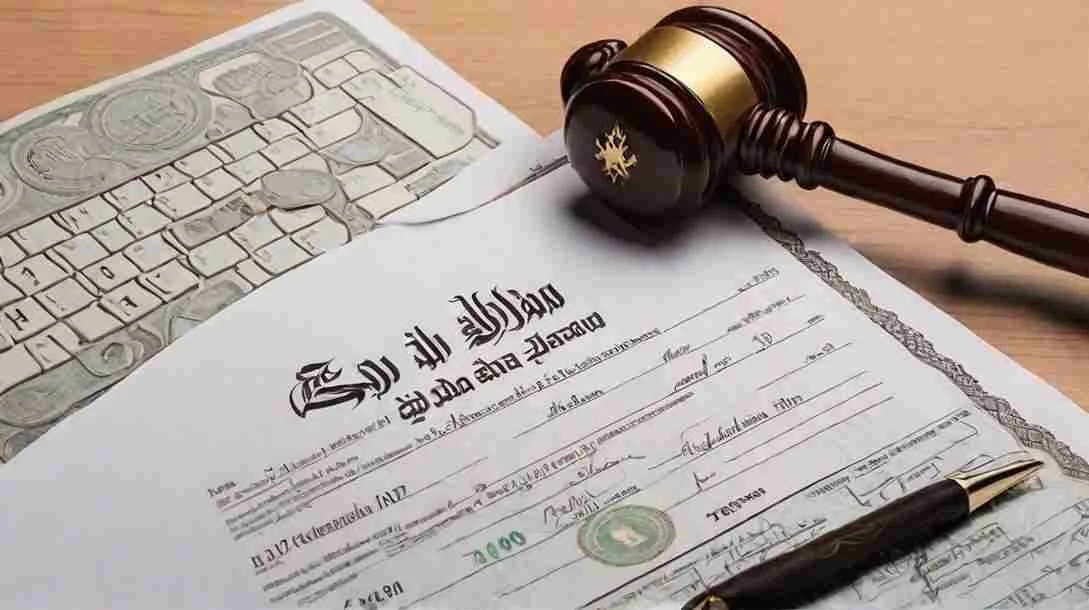Punishment for Not Paying Loan in UAE
In the United Arab Emirates (UAE), like any other country, taking out loans is a common practice for individuals and businesses. However, failing to repay these loans can have serious consequences. In this article, we will explore the various punishments and legal actions that can be taken against individuals or entities who do not fulfill their loan obligations.
Introduction
Taking out loans is a common practice in the UAE, enabling individuals and businesses to achieve their financial goals. Loans can be for various purposes, such as buying a home, starting a business, or funding education. However, it is crucial to understand the responsibilities associated with borrowing money, as failure to repay loans can lead to serious consequences.
Types of Loans
In the UAE, there are different types of loans available to meet specific financial needs. Some common types include personal loans, home loans, car loans, and business loans. Each type of loan comes with its terms and conditions, including repayment schedules and interest rates.
Loan Repayment
Timely repayment of loans is essential for maintaining a good financial standing. Meeting the loan repayment deadlines not only prevents penalties but also helps build a positive credit history, making it easier to obtain loans in the future.
Legal Framework
The UAE has a robust legal framework that governs loan defaults and debt recovery. The Central Bank of the UAE, along with other regulatory authorities, sets guidelines for lenders and borrowers alike.
Warning Notices
Before initiating any legal action, lenders typically issue warning notices to borrowers who have missed their loan payments. These notices serve as a reminder of the outstanding dues and give the borrower an opportunity to rectify the situation.
Asset Seizure
If a borrower consistently fails to repay the loan, the lender may resort to seizing the assets used as collateral for the loan. This process involves selling the assets to recover the outstanding amount.
Blacklisting
Defaulting on loans can lead to being blacklisted by credit agencies. Being on a credit blacklist can severely impact the individual's ability to obtain credit in the future.
Travel Ban
In extreme cases of loan default, the UAE government may impose a travel ban on the defaulter, preventing them from leaving the country until the outstanding debt is settled.
Criminal Charges
In cases of deliberate fraud or loan default of significant amounts, criminal charges can be filed against the defaulter. This can result in fines or imprisonment, depending on the severity of the offense.
Debt Settlement
For borrowers facing financial difficulties, negotiating a debt settlement with the lender may be an option. Debt settlement involves reaching an agreement to pay a reduced amount as a full settlement of the outstanding loan.
Avoiding Punishments
To avoid facing the severe consequences of loan default, borrowers should prioritize financial planning, budgeting, and responsible borrowing. Maintaining open communication with lenders during financial hardships can also help explore alternative repayment options.
Seeking Legal Help
In complex cases of loan default, seeking legal advice is essential. Lawyers specialized in financial matters can guide borrowers through legal procedures and protect their rights.
Importance of Credit Score
Defaulting on loans can severely impact an individual's credit score, making it challenging to secure credit in the future. Building and maintaining a good credit score is vital for financial stability.
Financial Planning
Financial planning plays a crucial role in preventing loan defaults. Creating a budget, managing expenses, and saving for emergencies can help individuals avoid falling into debt traps.
Conclusion
Fulfilling loan obligations is a responsibility that should not be taken lightly. Defaulting on loans in the UAE can lead to serious consequences, including asset seizure, blacklisting, travel bans, and even criminal charges. Responsible borrowing, open communication with lenders, and sound financial planning are essential to avoid such predicaments.
FAQs
1. Can I face imprisonment for defaulting on a small loan?
Imprisonment for loan default is generally reserved for cases involving significant amounts and deliberate fraud. However, it is essential to seek legal advice if you are facing difficulties in repaying any loan.
2. How long does a travel ban last for loan defaulters?
The duration of a travel ban can vary depending on the individual case and the amount of outstanding debt. It is typically lifted once the debt is settled or suitable arrangements are made.
3. Can I negotiate a debt settlement with my lender directly?
Yes, it is possible to negotiate a debt settlement directly with your lender if you are facing financial hardship. However, seeking legal advice before entering negotiations is recommended.
4. Will my credit score improve after settling the loan default?
Settling a loan default will have a positive impact on your credit score compared to leaving the debt unpaid. However, the exact improvement will depend on various factors.
5. How can I avoid loan default punishments?
To avoid loan default punishments, prioritize timely loan repayment, maintain open communication with lenders during financial difficulties, and seek professional financial advice when needed.
